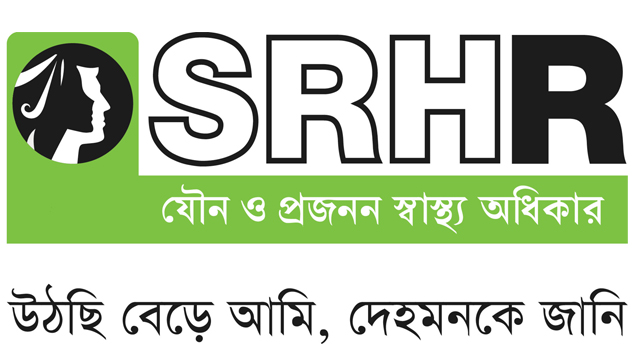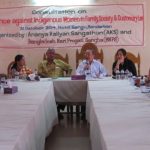
SRHR Education is a campaign-based program implementing by a consortium including BNPS, BRAC, CAMPE, FPAB, and HASAB through technical and financial support by OXFAM Novib. The program aims is that adolescents in Bangladesh have adequate skills and information to exercise their sexual and reproductive health and rights (SRHR) and make free and informed decisions in an enabling and safe environment, so that they suffer less from major sexual and reproductive health hazards.
The program lobbies for the implementation of a fully comprehensive SRHR curriculum at targeted schools, and as part of this lobby BNPS developed comprehensive education packages- curriculum, books, teachers guide, training manual, flip-charts and methodologies to teach this subject on SRHR and one hundred secondary schools have involved for this intervention which are operated by BNPS (35) and BRAC (65). In this regard, BRAC conducted a comparative study with the support of two consultants from Institute of Education and Research (IER) of Dhaka University on secondary level texts and supplementary books on SRHR developed by BNPS. The purpose of the study was to assess the effectiveness of BRAC SRHR intervention in secondary schools through reviewing of the BNPS and National Curriculum and Textbook Board (NCTB) curriculum, textbooks, relevant teaching-learning materials and methodology, finding out the effectiveness variation between the BRAC intervened and non-intervened secondary schools.
Following are the major findings of the study:
- Introduction of SRHR as comprehensive educational packages by BNPS that have substantial impact on the students’ knowledge, attitude and practice. Similarly, Govt.’s steps in bring change in the new curriculum and inclusion of reproductive health topics have benefitted the secondary school children remarkably.
- Particularly the girls of both intervened and non-intervened schools are being positively affected by the introduction of BNPS’s SRHR educational packages and NCTB’s Reproductive Health (RH) related education syllabi.
- BNPS-BRAC curriculum and books are well accepted by the teachers, students, guardians and the Govt. officials and have positive impact on the target groups. Students, teachers and parents have become aware about the importance of SRHR education, learning materials and effective methods without feeling discomfort and hesitation in the classrooms.
- In terms of acquiring knowledge, attitude and practice, the intervened school students are ahead of the non-intervened school students and despite prevailing socio-cultural norms, beliefs, taboos and stigmas of SRHR education and RH related education of NCTB have benefitted both boys and girls substantially.
- All related stakeholders including non-intervened schools students anticipated that the need for either introducing more topics on RH in the NCTB books on introduction of SRHR as a separate subject for the secondary school children in Bangladesh.
- Above all of this indicates need for policy-shift/formulation on the part of the Govt. to recognize SRHR as separate subject for the students at the secondary level education (general, madrasah, technical-vocational and English medium) in Bangladesh in the long term.


